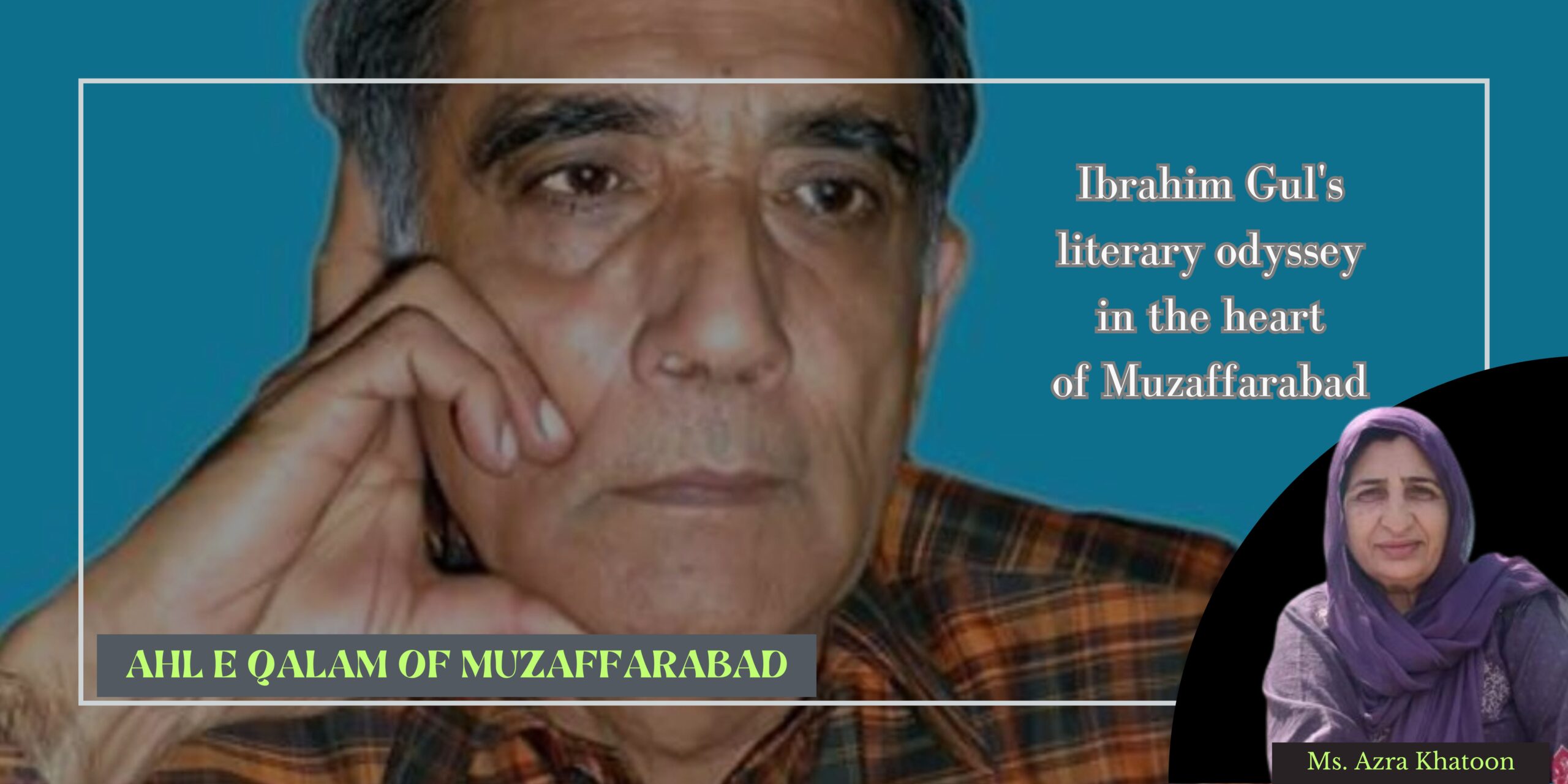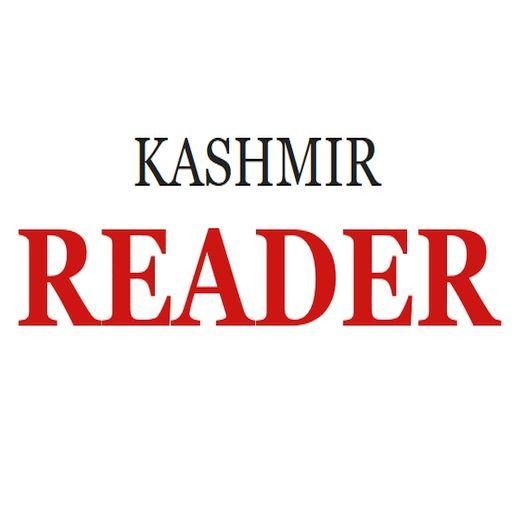Azra Zahra
One February afternoon in 2011, whereas navigating the bustling bazaar of Muzaffarabad, I ascended a slender staircase and stumbled upon a set of small rooms on the second flooring. Regardless of one door being barely ajar with scattered wooden inside, a sudden worry drove me to hurry downstairs, uncertain of the place it would lead.
I sought steering from the shopkeepers to pinpoint the placement of a newspaper man’s residence. Following their instructions, I returned to the identical spot and ultimately contacted Ibrahim Gull over the telephone to verify his dwelling.
Upon receiving the affirmation, I climbed the steps once more and, as I ventured nearer to the doorway, a voice beckoned me inside. The acquainted tone resonated with “Mira Ji,” although this time, it was Ibrahim Gul, generally known as “Gul Bhai.”
Contained in the room, two mattresses lay on the ground, one occupied by Gul bhai and the opposite adorned with cellphones, cigarette packs, and various objects whose specifics elude my reminiscence. The room itself resembled extra of a cupboard space than a residing space. This marked my second encounter with Gul Bhai, the primary being solely coincidental. He belonged to the Majzoob clan, devoted people who prioritize their targets over worldly glamour, but their vital contributions in literature and journalism typically go unacknowledged.
Born in 1955 within the metropolis of Iqbal, Sialkot, Ibrahim Gul, son of the famend comic “Azar Askari,” later migrated to Muzaffarabad. His upbringing, coupled along with his father’s large social circle, formed his oratory expertise. Gulbhai’s dad and mom had settled there after migrating in 1947. His father hailed from Srinagar, whereas his mom was initially from Jammu. Gulbhai commenced his major training in Sialkot. In 1962, on account of his father’s work in Muzaffarabad, Gulbhai, accompanied by his mom, additionally relocated to Muzaffarabad, the place he pursued his training as much as a BA Honors diploma.
His father’s in depth community of associates in Muzaffarabad performed a vital function in shaping Ibrahim’s communication expertise. Gul Ibrahim’s father, Azar Askari, wants no introduction for his comedian poetry. In 1975, “Kisht-i Zafaran” turned all of Muzaffarabad right into a saffron kingdom. Following in his father’s footsteps, Ibrahim has an ideal stash of unpublished humorous and satirical poems and verses.
اے ملکِ خداداد تو قسمت ہے ہماری
اب تجھ کو بہر طور بنانا ہی پڑے گا
ہے تلخ مگر اہلِ وطن سچ بھی یہی ہے
چینی کے لیۓ چین تو اب جانا ہی پڑے گا
Translation:
Oh blessed homeland, it’s our destiny certainly,
Now we should forge you in a unique creed.
Bitter it’s, but fact speaks unbowed,
China for sugar, this path we should plough.
Not solely did his poetry resonate with the unfairness within the social order, but in addition does he specific his need to change the wrongs in it:
جھوٹ بولو، کم تولو، ملاوٹ بھی کرو
اسطرح چمکے گا قسمت کا ستارہ دیکھنا
Translation:
Communicate lies, weigh much less, even combine deceit,
Thus shall the star of future brightly greet.
The person engaged on this job sits upon a humble rug inside the confines of a diminutive chamber, its partitions shaken by the tremors of his abode, providing him no refuge. The intricacies of destiny dictate that in his worldly existence, eyes stay shut, and faces turned away. But, upon departing this realm, mausoleums come up in his honor, his mortal stays honored, his phrases esteemed, and bonds of kinship cast in his wake.
Inside this circle, which included people like Jawad Jafari, Huzoor Imam Kazmi, and Arshad Geelani, Ibrahim earned respect from all the students of Muzaffarabad. His charming nature endeared him to many, and inside this close-knit neighborhood, he was held in excessive regard. The affectionate approach during which individuals regarded Gul Ibrahim typically resembled the love one would possibly really feel for an exceptionally endearing little one on account of his harmless and mild demeanor.
The irony of life surfaces in how people are sometimes unacknowledged throughout their existence however honored posthumously, echoed in references to famend figures like Ghalib and Faiz.
Ibrahim Gul, too, confronted adversity, shedding his home and spouse to the 2005 earthquake. Now, along with his youngsters in thoughts—a son pursuing a BS diploma and a daughter engaged in an MSc program—Gul Ibrahim relentlessly strives to navigate life’s challenges.
His multifaceted involvement in Azad Kashmir Radio as an announcer, compere, and dramatist alongside his dedication to the newspaper and poetic endeavors underscores his unwavering dedication. His poetry, intertwining bitter truths with a contact of humor, skillfully reveals hidden sorrow, resembling the act of wrapping a bitter tablet in honey, his distinctive creative expression.
Rooted in Kashmir and deeply linked to Muzaffarabad, Ibrahim Gul endeavors to rework his metropolis right into a haven, akin to a blossoming backyard. Acknowledging his efforts and increasing help turns into each a rightful gesture and a elementary want, recognizing his tireless pursuit of uplifting his environment.
His compositions, equivalent to “Rag Darbari” and “Starvation, Debt, and Poverty,” vividly illustrate societal challenges, mixing humor with the poignant actuality of a nation grappling with despair and starvation. Ibrahim Gul’s profound perception typically masks deep sorrow behind laughter, an eloquence that encapsulates the nation’s collective feelings.
یوں تو سب راگ ہیں بہت اچھے
سب سے اچھا ہے راگ درباری
اسکے گانے سے حل مسائل ہوں
وہ گھریلو ہوں چاہے سرکاری
Translation
“Although all tunes are actually nice,
Best of all is Rag Darbari’s line.
Its melodies unravel issues deep,
Be they home or these the realm does maintain.”
The nation’s intoxication and destitution deeply resonate inside Gul Ibrahim. They develop so bitter that ultimately, the age’s sighs discover their approach onto his tongue.
جھانک کر کشکول کے اندر دیکھا بھوک تھی
بھوک سے ٹوٹے گا یہ کشکول سہی ا یک دن
قرض لیکر آئی ایم ایف سے جو پیتے ہیں تو کیا
رنگ لاۓ گی ہماری فاقہ مستی ایک دن
Translation
Peeking into Kishkol, starvation lay inside,
In the future this Kishkol will break from its starvation’s tide.
What if from IMF loans we sip to outlive?
Our starvation will sometime paint our lives alive.
#Ahl #Qalam #Muzaffarabad #Ibrahim #Guls #literary #odyssey #coronary heart #Muzaffarabad
Kashmir Tourism
Kashmir News
Source Link



